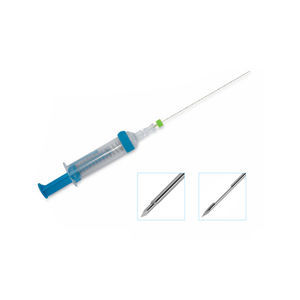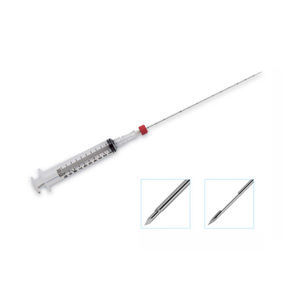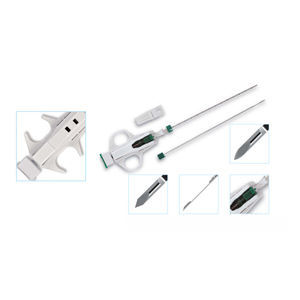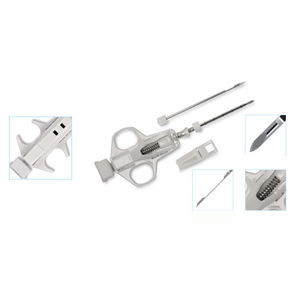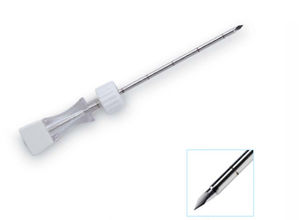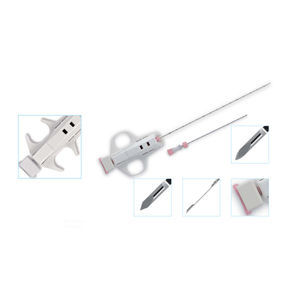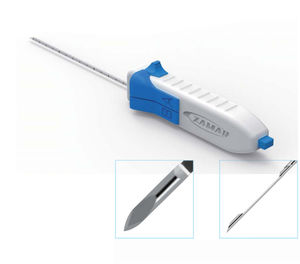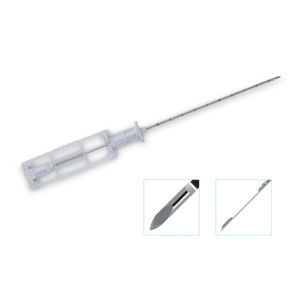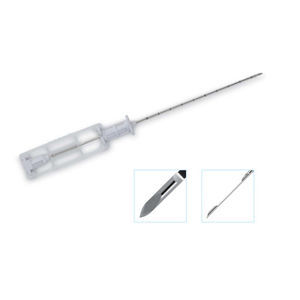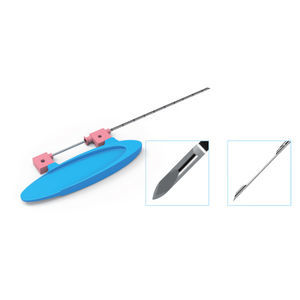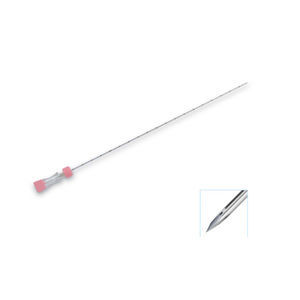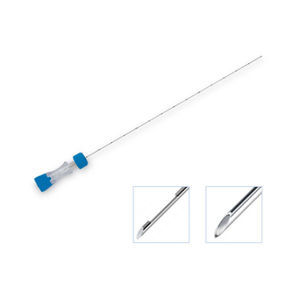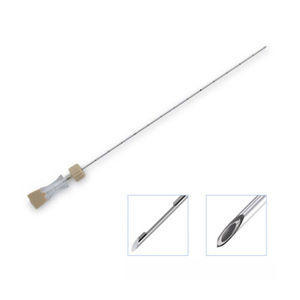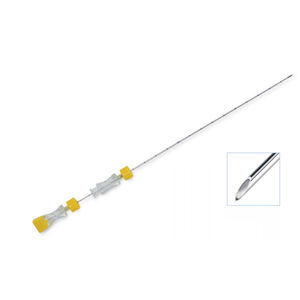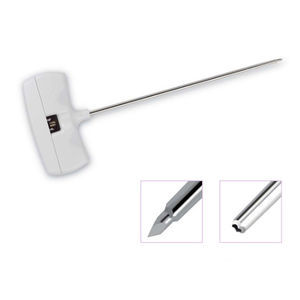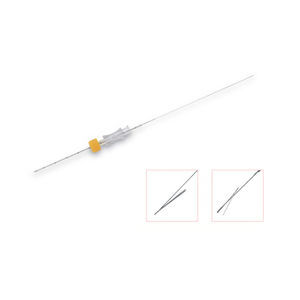

- Products
- Catalogs
- News & Trends
- Exhibitions
Histological biopsy needle HEPASYSliver biopsyMenghinihypodermic


Add to favorites
Compare this product
Characteristics
- Applications
- histological biopsy, liver biopsy
- Needle type
- Menghini
- Options
- hypodermic
- Diameter (gauge)
- 18G, 16G, 15G, 17G
Description
The first liver biopsy has been performed by Adolf Bingel in the year 1923. Since then, biopsy needles started to be fully developed and in the year 1938. Irving Silverman developed a bifid biopsy needle which is considered the "father" of all current tru-cut type biopsy needles. In 1958. Giorgio Menghini developed a vacuum assisted biopsy needle. Nowdays therapy choice is based according to biopsy results.
HEPASYS
Set for percutaneous liver biopsy
Menghini type cannula cutting tip, depth marks on the cannula. It includes a 10cc syringe with stopper, scalpel, hypodermic needle and obturator.
DIRECTIONS FOR USE
Remove aspiration syringe from peel pack, press down catch and push in piston completely. Remove injection needle from pack and screw it on to cone of syringe. Take biopsy needle and remove protective cap (hold needle cone in upright position). By keeping it upright connect biopsy needle with inserted stylet to the cone of syringe. Penetrate itercostally (after local anaestesia and cutaneous incision with the scalpel) until the peritoneal cvity is reached. Flush the cannula with approx 2 cc of saline solution (a flow resistance indicates that the canula tip is still obstructed by intercostal muscle: hence advance a little further). Create a vacum by pulling back the piston until it locks into position. Whilst the patient holds his own breath penetrate rapidly into the liver and extract the needle. After biopsy press down red catch, push forward piston and flush out specimen and remaining contents of syringe into a container.
Catalogs
No catalogs are available for this product.
See all of Zamar Therapy‘s catalogs*Prices are pre-tax. They exclude delivery charges and customs duties and do not include additional charges for installation or activation options. Prices are indicative only and may vary by country, with changes to the cost of raw materials and exchange rates.

